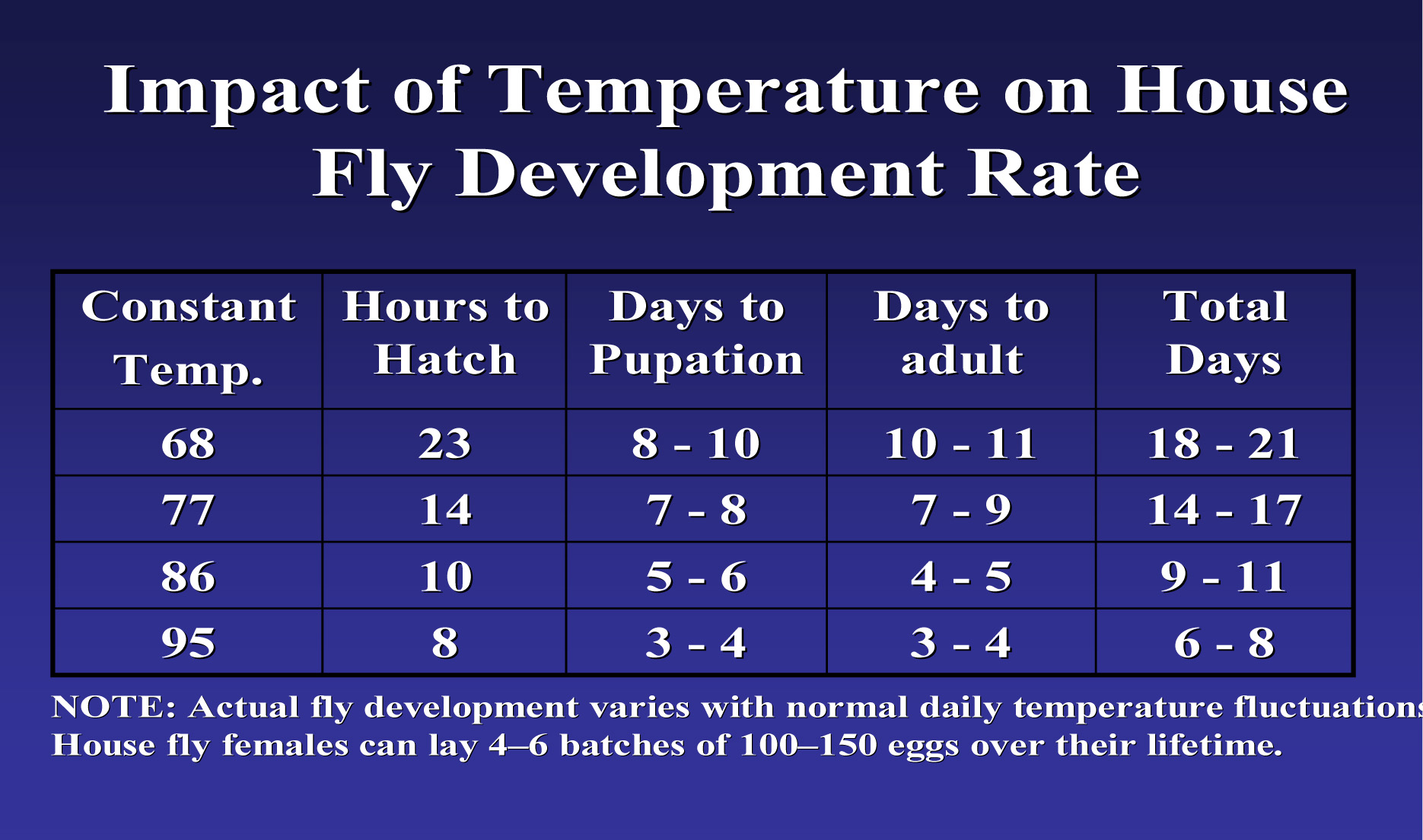Competency Area 4: Management of Arthropods
PO 28. Be able to discuss how ecological factors such as temperature, photoperiod, competition and moisture influences insect population growth and decline.
All arthropods are cold blooded and their rate of development is dependent on the surrounding temperatures. Arthropods develop faster as the temperature increases until the temperature becomes too hot for development. Generally, insect development is very slow at temperatures below 50 degrees F and insect development is inhibited when temperatures rise above 90-95 degrees F. An example of the influence on insect development is shown in the figure below.

Insects also have a very large reproductive potential. Usually only a very small percent of the population survive to continue the next generation, but each species usually has a large reproductive potential if the forces of mortality are reduced. When an insect is introduced into a new area without its wide array of natural enemies, the reproductive potential is often released, allowing the invasive insect to become a widespread pest
Quick Links
- Competency Area 1: Integrated Pest Management (IPM)
- Competency Area 2: Weed Management
- Competency Area 3: Management of Infectious Plant Diseases
- Competency Area 4: Management of Arthropods
- Competency Area 5: Pesticide Formulations and Labels
- Competency Area 6: Management of Pesticide Resistance
- Competency Area 7: Using Pesticides in an Enviromentally Sound Manner
- Competency Area 8: Protecting Humans from Pesticide Exposure

